Roundtable: Keys to Inter-Agency Collaboration & Culturally Competent Care: Lessons from CECT and USCRI Refugee Support
Andrew McLean, Marcie Beigel, Julia Yeary, Simran Grewal, & Tabassum SirajConstitution Hall Room 3
Abstract: When the United States government announced they would be pulling out of Afghanistan and accepting refugees and asylum seekers, multiple agencies and organizations came together in anticipation of the multiple, complex needs people would have. Issues like housing, supplies for infants and children, entry into the US education system, physical health needs, and setting up places around the country for these communities to live were tackled through an immense collaboration effort.
In an effort to address the mental health needs of our Afghan guests, the Department of Homeland Security and the United States Committee for Refugees and Immigrants came to Vibrant Emotional Health. The Crisis Emotional Care Team, a program within Vibrant which provides professional mental health volunteers, was ready to take up that effort and quickly got to work organizing volunteers to visit military bases and safe havens across the US.
The CECT sent volunteers a total of 84 times across nine states, providing almost 4,500 hours of service to Afghan refugees and immigrants. In that time, both the CECT, USCRI, ORR, and other government agencies learned a lot about collaboration between government and non-governmental organizations, setting volunteers up for success when encountering cultural differences and boundaries, and the communication styles that help the people across these organizations work together at their best.
This panel will provide insight into lessons learned, developing best practices in the moment, and what volunteers in these situations need most from the agencies to do their best work.
Host

Amy Carol Dominguez
- Pronouns: she/her/hers
- Title: Program Director, Crisis Emotional Care Team
Panelists
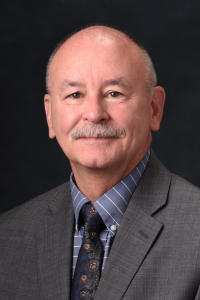
Dr. Andrew McLean
- Pronouns: he/him/his
- Title: Department Chair of Psychiatry and Behavioral Science
- Bio: Dr. McLean is Chair of the Department of Psychiatry and Behavioral Science at UND School of Medicine and Health Sciences. He obtained his medical degree from the University of North Dakota School of Medicine, completed a psychiatry residency at the University of Wisconsin and an M.P.H. degree from the University of Minnesota. He has been recognized as a UND School of Medicine Distinguished Alumnus, has received the American Psychiatric Association Bruno Lima award for outstanding contributions to Disaster Psychiatry, and has been conferred with numerous teaching excellence awards. Dr. McLean previously was the Medical Director of the ND Department of Human Services. He has served on numerous clinical, administrative and regulatory boards including medical licensing and professional health programs. He has lectured internationally on pertinent behavioral and public health issues. Dr. McLean has a particular interest in collaborative models of care. He also is interested in individual and community resilience.
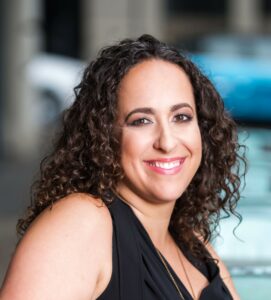
Dr. Marcie Beigel
- Pronouns: she/her/hers
- Title: Family Culture Expert
- Bio: For more than 20 years, Dr. Marcie has been creating culture change with families, schools, and organizations; sharing her tools and strategies with thousands. She helps families shift from breakdown and disconnection to happy dances and memorable moments. She helps organizations build the bridge between mental health and business. Dr. Marcie believes the best way to create change is through inspiration and experience. This means her work, with both organizations and families is experiential, engaging, and practical because change only matters if it lasts. Dr. Marcie earned her doctorate from Teachers College, Columbia University and is a Board Certified Behavior Analyst-Doctorate Level. She is the best selling author of Love Your Family Again and Love Your Classroom Again. She is based in New York City, though loves to travel to her clients around the world. She has been a guest behavioral expert on national media, including FOX, ABC, and NBC. Sharing her passion for behavior has led her to speak at organizations ranging from individual school districts to the Royal Australian Navy to TEDxNaperville. For more information about her programs and training visit DrMarcie.com.
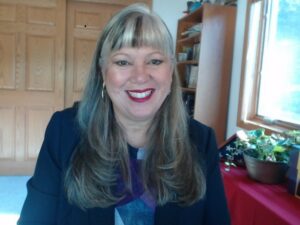
Julia Yeary
- Pronouns: she/her/hers
- Bio: Julia Yeary, LCSW, IMH-E® has been an advocate for children and their families since graduating from the University of Hawaii in 1980 with her master’s in social work. Julia works to establish stronger support for families and their very young children experiencing stress and trauma. Julia has authored several articles including Difficult Goodbyes: Supporting Toddlers Coping with Separation Anxiety (Young Children, July 2020), The Calm in the Storm: Supporting Young Children Before, During and After a Community Disaster or Trauma, (Young Child, November 2018), and the e-book Creating Activities for Strengthening Parent-Child Connections (ZERO TO THREE, 2011). Julia is rostered in Child Parent Psychotherapy and is credentialed with the Infant Mental Health (IMH) Endorsement® for Culturally Sensitive, Relationship-Focused Practice Promoting Infant Mental Health as a mentor in both policy and clinical.

Dr. Gursimran Grewal
- Pronouns: she/her/hers
- Title: Director of Refugee Health Services
- Bio: Dr. Gursimran Grewal is a trained Medical Doctor with a wealth of experience in global public health, specializing in Sexual and Reproductive Health, Family Planning, Maternal and Child Health, and HIV/AIDS. Over the past decade, she has provided technical leadership, project management, and financial oversight for large-scale programs across Asia and Africa, in partnership with international NGOs, private sector organizations, and governmental bodies. Her programs have been funded by a range of major donors, including BMGF, USAID, CDC, and others.Dr. Grewal's expertise in building partnerships and identifying new opportunities has been critical to the success of her work, and her dedication to delivering sustainable program interventions has improved the health and well-being of communities around the world. Currently, Dr. Grewal serves as the director of USCRI's Refugee Health Services, where she focuses on promoting the health and well-being of refugees resettled in the United States. She oversees the development and implementation of culturally sensitive and linguistically appropriate health assessments, education, and referrals, working collaboratively with community partners to ensure high-quality care and support for refugees.Her leadership skills and deep knowledge of refugee health and wellness have been instrumental in the program's success. Dr. Grewal's commitment to promoting equity and social justice is reflected in her work, which is recognized for delivering innovative and sustainable public health solutions. She is a compassionate and effective leader, with a proven track record of improving the health and well-being of vulnerable populations. Her expertise, leadership, and dedication make her an invaluable asset to any organization committed to global public health.
- Website: https://refugees.org/
- USCRI Twitter
- USCRI Instagram
- USCRI Facebook
- USCRI LinkedIn
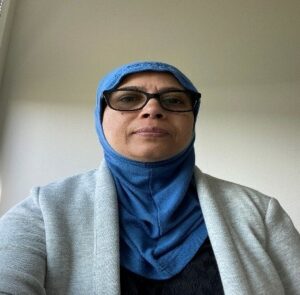
Tabassum Siraj
- Pronouns: she/her/hers
- Title: Mental Health Team Lead, Division of Refugee Health
- Bio: Tabassum Siraj is the Mental Health Team Lead in the Division of Refugee Health (DRH). She joined ORR in 2010. Her areas of expertise include program management, trauma awareness and resilience strategies, gender-based violence, diaspora community leadership, and the empowerment of women and youth. She was the ORR lead for mental health services to Afghans throughout Operation Allies Welcome. Tabassum holds a dual master’s degree from Georgetown University’s School of Public Policy and the Edmund Walsh School of Foreign Service, and a certificate in refugee and humanitarian emergencies.
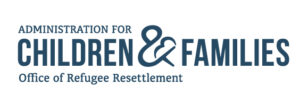

Recent Comments